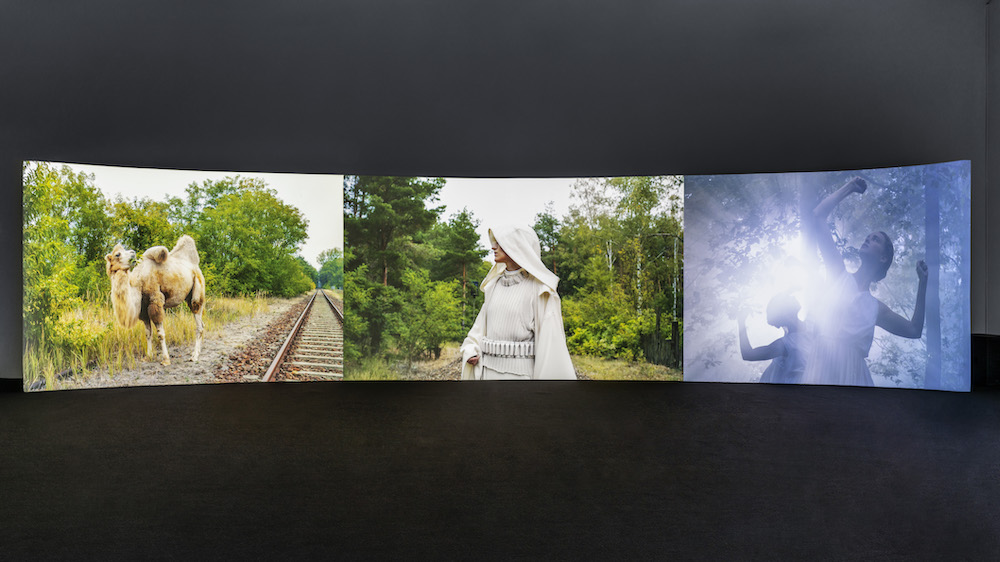In an age when so much gratuitous violence pervades our screens, the three-channel film Malka Germania presents a gentle Jungian perspective on the effects of the Holocaust on today’s German citizens. The film alludes to collective trauma about war and subjugation, while transforming that trauma into manna.
Malka Germania (Queen Germania in Hebrew), created by Israeli native/Berlin resident Yael Bartana, features the elegantly androgynous Malka (Gala Moody) moving slowly through Berlin while attired in a long, hooded robe. She dominates the city—portrayed in the film as the locus of Germany’s draconian past—and observes people going about their lives, including soldiers in the Israel Defense Forces, Hitler Youth in training, beautiful female dancers and an organ grinder. The three-channel process provides a visceral look into the German people’s awareness of their collective history. As the channels segue onward, the film encourages Berlin residents—and us—to envision images of persecution and power.
Other players in the film include fair-haired beachgoers relaxing, playing and riding in boats, until the noise of helicopters disrupts their false sense of well-being. The awareness of a warmongering past is emphasized with sounds of marching soldiers, traffic noise, church bells and barking dogs.

Installation view of “Yael Bartana: Malka Germania” at Contemporary Arts Center Gallery, UC Irvine, 2022. Photo: Yubo Dong.
A concluding scene features a computer-generated image of an imperial Nazi “Hall of the People” rising from a lake that evokes Albert Speer’s proposed design to celebrate Germany’s World War II victory. It also references the lost city of Atlantis, a fictional parable about the dire consequences of corruption and arrogance. The film closes as hordes of German citizens walk wearily along the railroad tracks, leaving Berlin, as Malka looks on approvingly from a separate channel.
While portraying the ambiguities of the contemporary German- Jewish experience, the film merges the past with the present. As a Jewish woman, my dreams, memories and current perspectives are often framed by an awareness of the persecutions and fears of my ancestors, who lived through life-threatening pogroms, the repercussions of which can be felt with my relatives today.
Malka Germania has compelled me to embark on a Jungian journey of examining my legacy as metaphor for and reflection of the larger world’s tendency toward war and domination—and to view that legacy as a stimulus and muse for creativity, as Bartana does in this important film.


